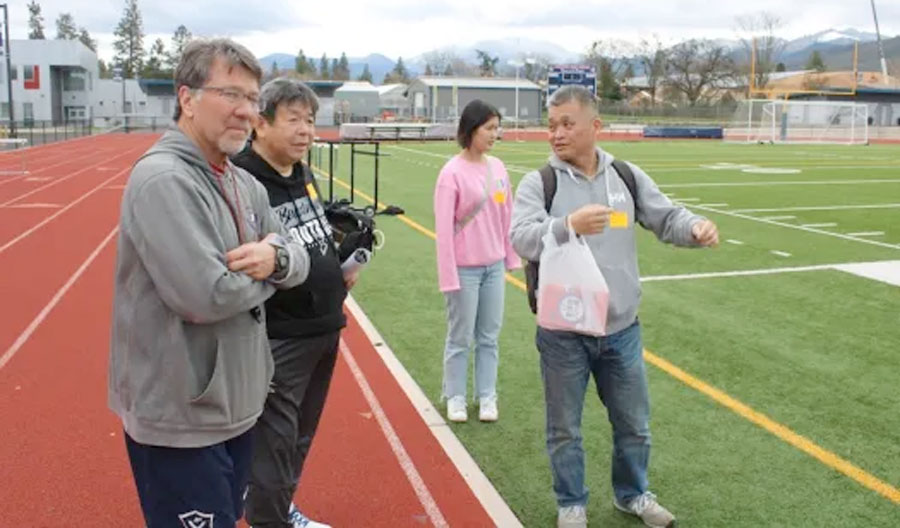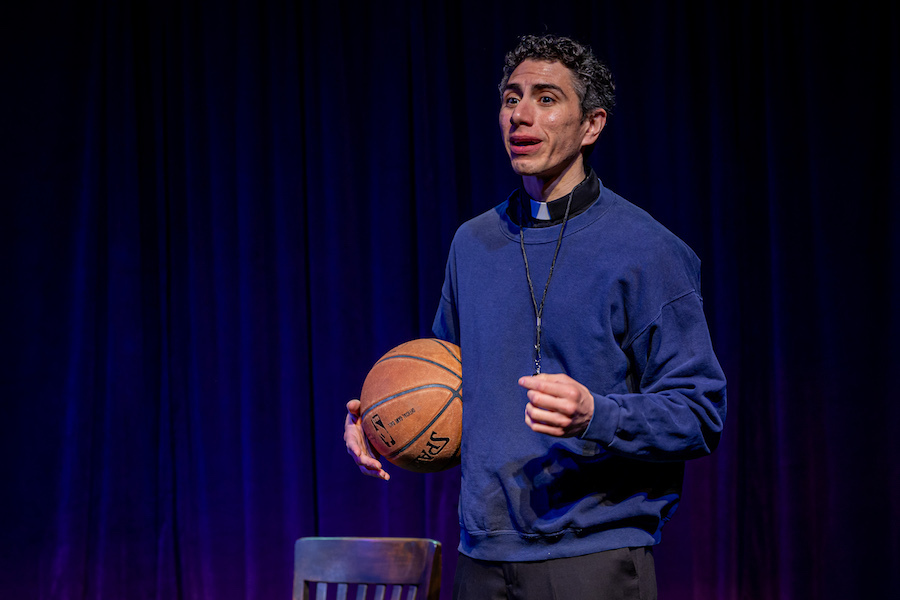We are (still) headed in the wrong direction. Fast.
By Barbara Cervone
Reports of our inadequate response to the climate emergency roll in as regularly as the tides. The latest came from the United Nation’s Intergovernmental Panel on Climate Change (IPCC), telling us that the crisis is getting worse even faster than we’d imagined. It’s hard to envision a louder alarm, and yet we seem able to sleep through it.

The original goal set in the historic Paris Agreement, limiting global warming to 1.5 degrees Celsius above pre-industrial temperatures, is quickly fading into the rearview mirror. The emissions of gases such as carbon dioxide and methane must peak as soon as possible, in 2025 at the latest, hundreds of the world’s scientists warn, then plummet to half their current levels by 2030, and drop to zero by 2050.
As you no doubt know, we are headed in the wrong direction. 2020 was the second-warmest year on record. The warmest seven years have all been since 2015.
The astonishing young climate activist Greta Thunberg, shouts: “I want you to act as if your house is on fire.”
Yes, Greta, it is.
Reducing my carbon footprint
A carbon footprint is the total amount of greenhouse gases (including carbon dioxide and methane) that are generated by our actions. The average carbon footprint for a person in the United States is 16 tons, one of the highest rates in the world. To have the best chance of avoiding a 2-degree Celsius rise in global temperatures, the average global carbon footprint per year needs to drop to under 2 tons by 2050.
Reducing one’s carbon footprint is a personal assignment. In our home, my spouse has led the way.
Having grown up in southern Italy with no running water or electricity, Tony has always kept showering to a minimum, worn the same clothes for days, patrolled our lights, railed against watering lawns, flushed toilets sparingly, and generally kept his head down when it came to consumption. Step-by-step, I’ve moved towards Tony’s side.
Food, too, is an area where Tony has set the table, where his southern Italian roots have crossed the Atlantic Ocean, including the custom of shopping sparingly but often. We rarely throw food away. With Tony’s dedication to cooking — and exquisite skills — we eat out infrequently and avoid take out.
Electrifying our homes and cars, one machine at a time, will no doubt curb runaway emissions. I keep thinking that perhaps the best way to cut America’s energy usage is to shrink the size of our houses, our food servings, our wardrobes, our belongings. Size matters.
Air travel, however, is where Tony’s and my carbon footprint grows large. Travel connects us to far flung family, expands us, makes us feel alive. Sadly, old age, not carbide dioxide emissions, will eventually clip our wings. My donations to small nonprofits in the developing world barely balance this debt.
Knock-knock, who’s there? Climate change
In Southern Oregon, indeed across much of the West, the knock of global warming keeps growing louder. In the four years since we moved to this wide-open landscape, wildfires, smoke, sizzling summers and drought have closed in. The pace of change is astonishing. Last year, Oregon wildfires burned more than a million more acres than they did the year before.
Here in Jackson County, 2021 ended as it began: desperately dry. The three reservoirs critical to irrigation remain at historically low levels. In 2021, the Talent Irrigation District, whose canals supply water to farmers and adjacent homeowners, closed four weeks after it opened. The growing season was likely the shortest on record.
We are learning, too, that drought, like its progenitor climate change, is a threat multiplier. The catastrophic September 2020 fires in the towns of Talent and Phoenix —disproportionately Hispanic and poor — continue to displace almost every aspect of life in these communities. Weeks of wildfire smoke — months in the summer of 2020 — permeated everything from breathing to economic activity, small and large.
Talk of a “new normal” sounds far too benign.
Supporting the next generation of climate activists
In the dedication to her 2020 book, “Vote. Voice. Use Your Feet.,” Jane Fonda notes that when she was young, she thought activism was a sprint. When she was older, she learned it is a marathon. At 82, she’s realized that activism is neither a sprint nor a marathon but a relay race. “The most important thing we adults can do now is join and support the next generation of climate activists ready to lead the movement,” she says.
I couldn’t agree more.
For the past year, I’ve posted articles daily to a Facebook page called youthvoicesforchange which provides a running chronicle of youth activism around climate change. One day, the story may be about the hundreds of thousands students across the globe who skipped school and marched through their cities calling for decisive action on climate change. Another day, it might be about Maine youth climate activists descending on the state capitol to push a climate change agenda.
Unlike Jane Fonda, who still takes to the streets, my contributions to this fight come from my checkbook.
Choosing hope
I began a 10-week “climate protector” course with Southern Oregon Climate Action Now (SOCAN) thinking I had a passable understanding of global warming and the climate science behind it. The first two classes left me on the verge of tears. I truly hadn’t realized how much of our climate catastrophe is already baked in. Half-way through the course, I vowed to choose what I think of as rational hope.
We can’t change the world by ourselves, Katharine Hayhoe, chief scientist for The Nature Conservancy, reminds us in her stunning TED Talk. It requires us to connect, to talk about why climate change matters and how it affects us personally, about what we are doing ourselves and what others are doing.
“We picture this problem as a giant boulder sitting at the bottom of a hill, with only a few hands on it trying to roll it up the hill,” Hayhoe says. “But in reality, that boulder is already at the top of the hill. And it’s got hundreds of millions of hands, maybe even billions, on it, pushing it down. It just isn’t going fast enough.”
Barbara Cervone moved to the Rogue Valley four years ago after 50 years in the urban Northeast. She spent her professional career championing public schools that serve all students well. A passionate writer, she has Bachelor of Arts and Doctor of Education degrees from Harvard University.



















